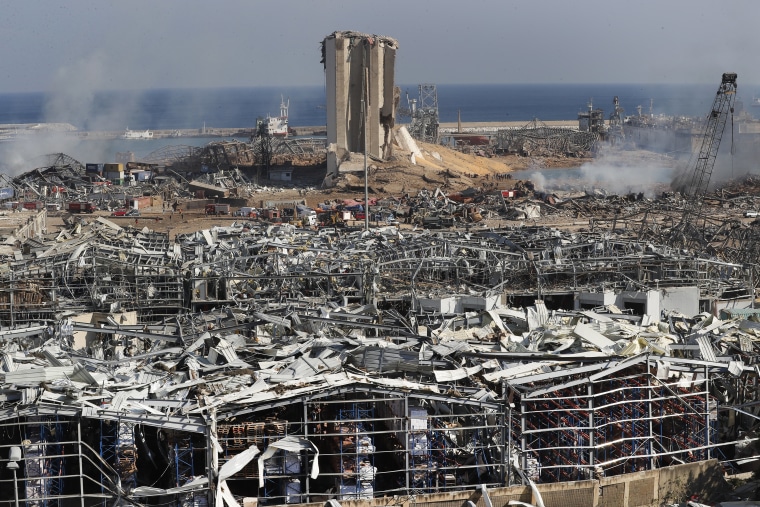Lebanon is still reeling after a colossal explosion in Beirut yesterday, which killed at least 100 people and injured thousands more. Not surprisingly given the circumstances, there are still many questions about what exactly happened and why.
Those looking for answers to those questions probably shouldn't look to Donald Trump.
At a White House briefing yesterday, the American president said unprompted that the Beirut explosion appeared to be the result of "a terrible attack." That pronouncement appeared to be a major development: at that point, there'd been no public indication from anyone, here or abroad, about the explosion having been the result of an attack.
So, a reporter sought clarification soon after, asking Trump whether he's confident about that assessment. He replied:
"Well, it would seem like it, based on the explosion. I've met with some of our great generals, and they just seem to feel that it was. This was not a -- some kind of a manufacturing explosion type of event. This was a -- seems to be, according to them -- they would know better than I would, but they seem to think it was a attack. It was a bomb of some kind. Yes."
Note the shift. Trump initially said he thought the explosion "seemed" like an attack, which he soon followed by attributing this to "great generals" whom he claims to have spoken with. It's entirely possible those discussions did not occur: Trump routinely describes the details of conversations with powerful people that only happened in his imagination.
It wasn't long before some inside the Pentagon pushed back against the president's hollow rhetoric. CNN reported:
Three US Defense Department officials told CNN that as of Tuesday night there was no indication that the massive explosion that rocked Beirut on Tuesday were an "attack," contradicting an earlier claim from President Donald Trump.... Defense officials, who declined to be identified so they could speak freely, said they didn't know what the President was talking about.
The report added that if U.S. officials had reason to believe this was an actual attack, "it would trigger automatic increases in force protection for US troops and assets in the region -- if for no other reason than worry about retribution attacks. That official noted that none of that has happened so far."
Broadly speaking, there are a couple of angles to this that are worth keeping in mind. First, Americans are generally supposed to have some degree of confidence that an American president, speaking from the White House podium about a security matters, can be trusted to tell the truth.
Under Trump, that's obviously not possible. The Republican just makes stuff up and blurts out random thoughts. Even after an explosion like the one the world saw in Beirut yesterday, the American president isn't above just spitballing.
And second, it remains striking the frequency with which it falls to the Department of Defense to let the public know that Trump doesn't know what he's talking about.
Earlier this year, after the president talked about committing war crimes by targeting Iranian cultural sites, it fell to the Pentagon to say we would not be doing that. A week later, Trump said Saudi Arabia was paying the United States to deploy troops to the Middle East. No, the DOD said, actually it wasn't.
As we discussed at the time, these weren't isolated contradictions. Last year, Trump boasted that the United States had "taken" Syrian oil, and he intended to partner with the private sector to extract even more. Soon after, the Pentagon's top spokesperson insisted that we would absolutely not be taking any Syrian oil.
This came on the heels of the president arguing that in the military, servicemembers are "not allowed to take any drugs," which in his mind, necessarily meant there could be no transgender troops. This was wrong for all kinds of reasons, including the fact that Trump was misstating DOD policy on medications.
A Pentagon spokesperson explained at the time, "The Military Health System covers all approved medically necessary treatments and prescription medications. If a service member has a hormone deficiency for any reason (such as hypogonadism, hypothyroidism, menopause, etc.), he or she would be prescribed hormones."
More than a year later, after Trump blurted out a dubious announcement about an "attack" in Lebanon, it fell to DOD officials to signal once more to the public that the president's rhetoric is not to be taken seriously.
Has any government agency been more willing to contradict Trump than the Department of Defense?

